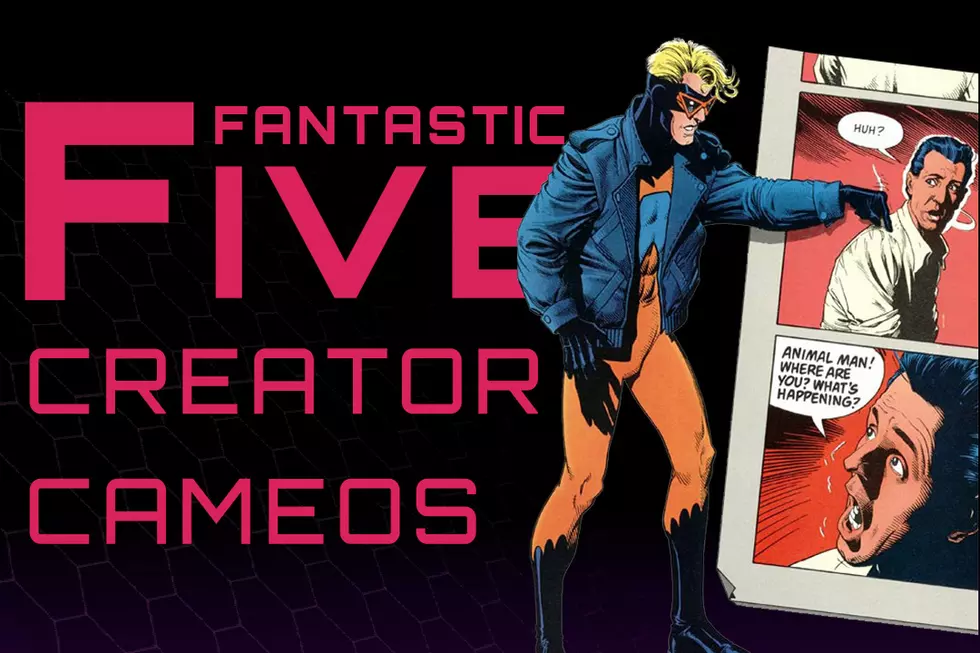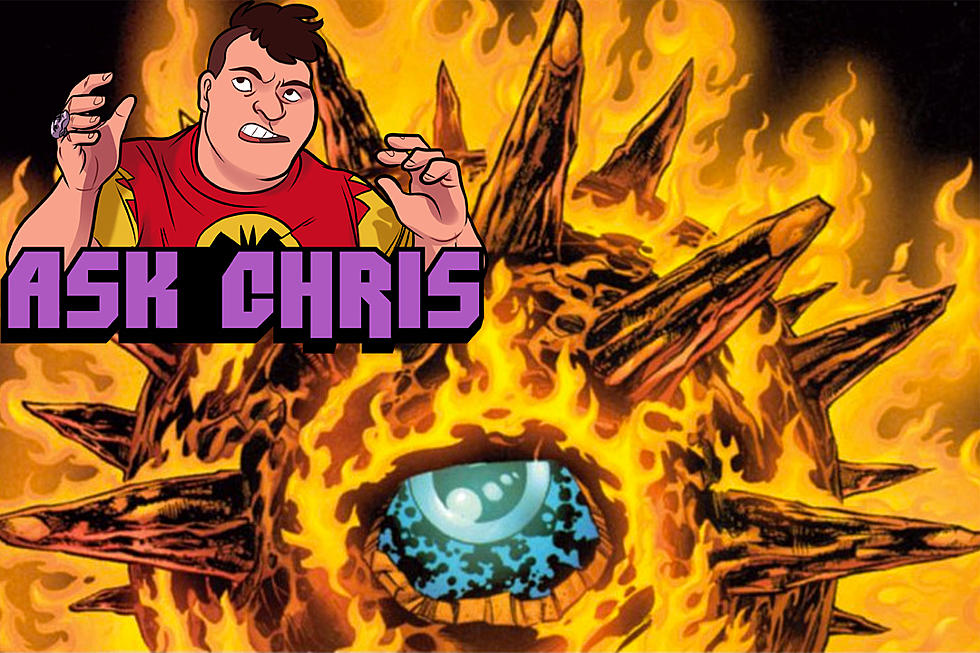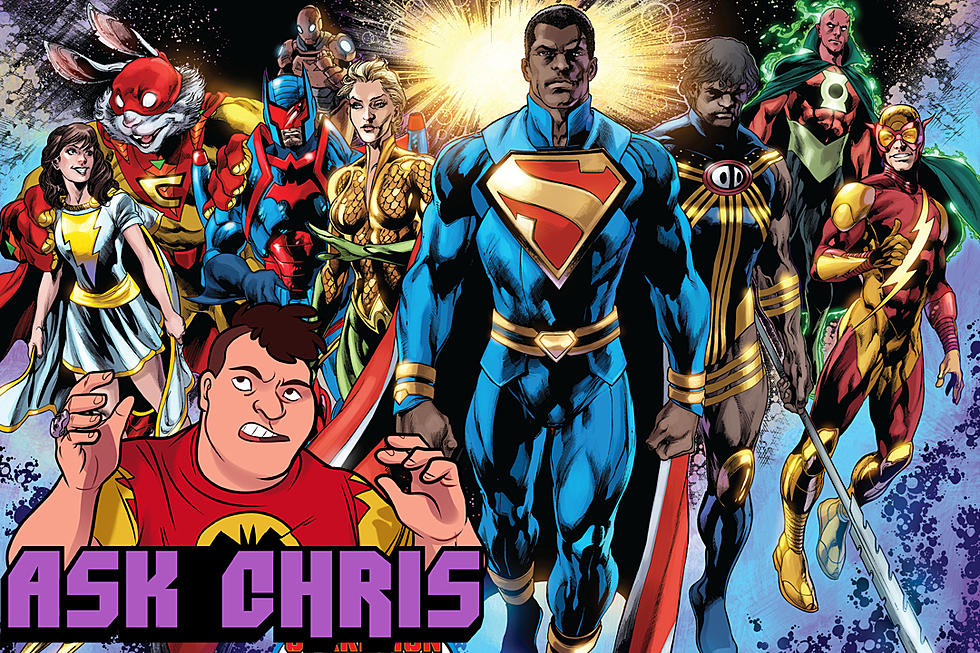
This Magazine Kills Fascists: Christmas Disobedience In ‘Klaus’
This Magazine Kills Fascists looks at times that comic books and superheroes have dealt with tyrannical, corrupt and outright fascist world leaders — not because we think we can find a solution, but because art can provide inspiration in the face of oppression.
One of the best things about the holiday season is how packed with wonderful and positive messages it is. It’s a time to be a little bit kinder, a little bit more understanding; a time to come together with friends, family and loved ones and celebrate the best in life. Also, as shown in Grant Morrison and Dan Mora’s Klaus, it’s a time to stand-up to oppression through carefully planned civil disobedience.
Yes, Klaus is about the origins of Santa Claus, and it gives us origins for his sleigh, his red costume, and even his “Ho Ho Ho,” but it’s a really smartly done Santa Claus origin that I’d put up alongside All-Star Superman in terms of perfect distillations of beloved cultural icons.
When Klaus arrives in the town of Grimsvig, he finds it without cheer, and wonders aloud what happened to the lights and songs once associated with the Yuletime. He’s informed that the men are working overtime in the mines by orders of the baron, to prepare for the King’s arrival, and discovers that all toys have been confiscated from the hands of children, rounded up and presented to Master Jonas, the Baron’s son.
After being cast out of Grimsvig and left for dead by the Baron’s men, Klaus is visited by the mysterious alien sprites known as The Shining People, and when he wakes up the next morning he finds he has carved dozens of toys that overflow from a big brown sack. Blessed with new abilities, Klaus waits for nighttime to break back into Grimsiv to do the most revolutionary thing he can: Make people happy.
The acts of civil disobedience found in Klaus #2 all have a somewhat festive theme; he drops a giant snowball on some guards, he builds a snowman around an unconscious brute, he defaces a poster of the Baron with a smile and the rune for joy. What’s important is that his protest is symbolically relevant; if the town is going to ban its citizens from celebrating Yuletime, Klaus will bring Yuletime to them.
The series also keeps track of a Grimsvig family, including its miner father Gunnar, and children Finn, Jan and Elinda. When threatened by an unearthly horror, it's not Klaus that saves them, it's Gunnar, who --- inspired by Klaus' example --- snaps out of his fugue state to keep his children safe --- and when other children ask if Gunnar is the Santa, Finn proudly proclaims "No. That's dad. He's our dad."
The important thing here isn’t necessarily Santa or Christmas, it’s about finding your way to protest. There’s no one right way to stand up to an oppressive regime, and different forms of oppression and persecution require different forms of opposition. It won’t always be physical; it might be using your platform to help spread an important message, or it might be something as simple as shutting up and helping raise the voices of those who know what they’re talking about.
While Christmas is considered a very happy and festive time for many, it’s also incredibly hard for a lot of people. If you need help, you can always contact The Samaritans, or you can find more resources here.
If you’re looking for a worthy cause to donate to this Holiday season, these are just a few that we recommend that can help individuals and groups that are especially vulnerable at the moment:
For more post-election resources, Holy F— The Election is a great starting point. As you might guess, the website uses some strong language!
More From ComicsAlliance









